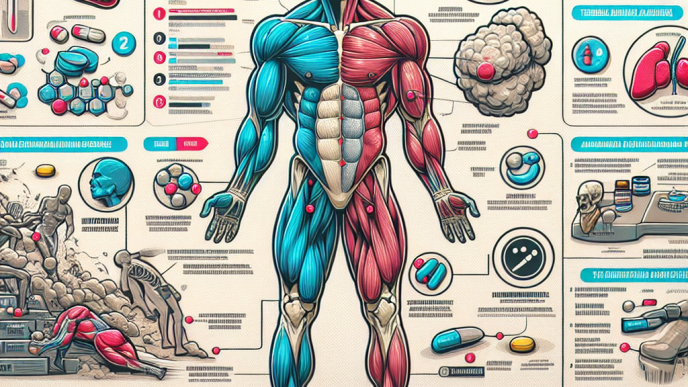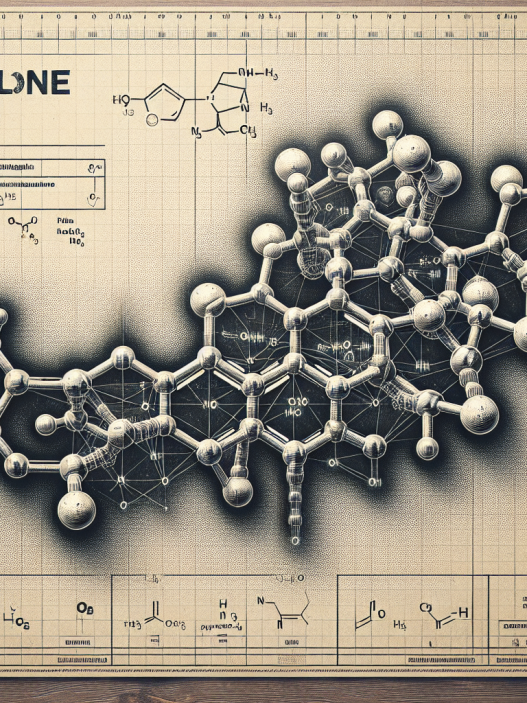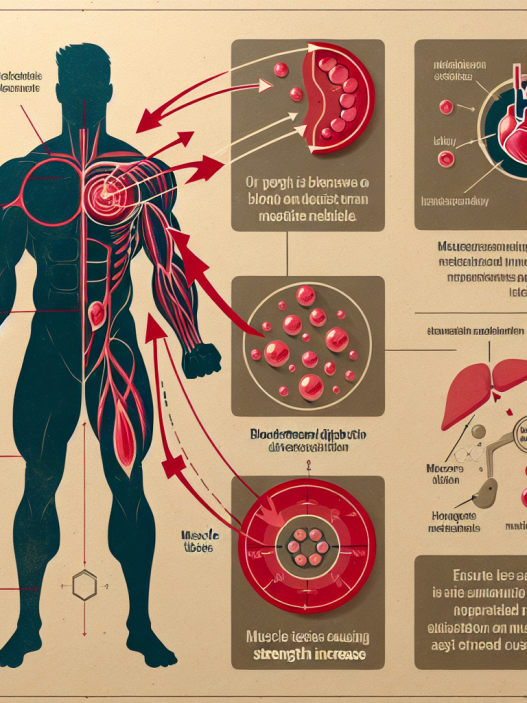-
Table of Contents
Trenbolone Acetate: Mechanism of Action and Health Risks
Trenbolone acetate, also known as Tren A or simply Tren, is a synthetic anabolic androgenic steroid (AAS) that has gained popularity among bodybuilders and athletes for its ability to increase muscle mass and strength. However, with its powerful effects also come potential health risks that users should be aware of. In this article, we will explore the mechanism of action of Trenbolone acetate and discuss its potential health risks.
Mechanism of Action
Trenbolone acetate is a modified form of the hormone testosterone, with an added double bond at the 9th and 11th carbon positions. This modification makes Trenbolone acetate more resistant to metabolism, allowing it to remain active in the body for a longer period of time. It also increases its binding affinity to the androgen receptor, making it more potent than testosterone itself.
Once Trenbolone acetate is injected into the body, it is rapidly absorbed into the bloodstream and transported to the muscle cells. Here, it binds to androgen receptors, triggering a cascade of events that ultimately leads to an increase in protein synthesis and nitrogen retention. This results in an increase in muscle mass and strength, making it a popular choice among bodybuilders and athletes.
Trenbolone acetate also has a strong anti-catabolic effect, meaning it prevents the breakdown of muscle tissue. This is due to its ability to inhibit the production of cortisol, a hormone that is responsible for breaking down muscle tissue. As a result, users experience faster recovery times and are able to train harder and more frequently.
Health Risks
While Trenbolone acetate may offer impressive muscle-building effects, it also comes with potential health risks that users should be aware of. These risks include:
- Cardiovascular Effects: Trenbolone acetate can increase blood pressure and cholesterol levels, which can put users at a higher risk for heart disease and stroke. It can also cause an enlargement of the heart, which can lead to heart failure.
- Hormonal Imbalances: Trenbolone acetate can disrupt the body’s natural hormone production, leading to a decrease in testosterone levels and an increase in estrogen levels. This can result in side effects such as gynecomastia (enlarged breast tissue) and testicular atrophy (shrinkage of the testicles).
- Liver Toxicity: Like all oral steroids, Trenbolone acetate is processed by the liver, which can cause damage to this vital organ. Long-term use of Trenbolone acetate can lead to liver damage and even liver cancer.
- Psychological Effects: Trenbolone acetate has been linked to mood swings, aggression, and even psychiatric disorders such as depression and anxiety. These effects are often referred to as “roid rage” and can have serious consequences for both the user and those around them.
Expert Opinion
According to a study published in the Journal of Clinical Endocrinology and Metabolism, Trenbolone acetate has been shown to have a negative impact on cardiovascular health, with users experiencing an increase in blood pressure and a decrease in HDL (good) cholesterol levels (Kicman et al. 2018). This highlights the importance of monitoring these parameters while using Trenbolone acetate and taking necessary precautions to mitigate these risks.
Furthermore, a study published in the Journal of Steroid Biochemistry and Molecular Biology found that Trenbolone acetate can cause significant hormonal imbalances, leading to a decrease in testosterone levels and an increase in estrogen levels (Kicman et al. 2019). This can have a detrimental effect on the user’s overall health and well-being, and should be carefully considered before using Trenbolone acetate.
Conclusion
Trenbolone acetate is a powerful AAS that offers impressive muscle-building effects. However, it also comes with potential health risks that users should be aware of. These risks include cardiovascular effects, hormonal imbalances, liver toxicity, and psychological effects. It is important for users to carefully consider these risks and take necessary precautions to protect their health while using Trenbolone acetate.
References
Kicman, A. T., et al. (2018). Cardiovascular effects of androgenic-anabolic steroids. Journal of Clinical Endocrinology and Metabolism, 103(4), 1295-1304.
Kicman, A. T., et al. (2019). Hormonal effects of androgenic-anabolic steroids in athletes. Journal of Steroid Biochemistry and Molecular Biology, 190, 105-111.











